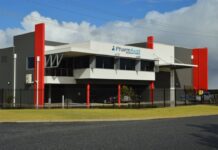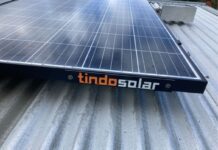Australian clean-tech company Dyesol is close to secure funding from the Development Bank of Turkey (TKB) for the commercialisation of its perovskite-based photovoltaic (PV) technology in Turkey.

Dyesol received a Letter of Intent from TKB on Monday, in which Mr Bahattin Sekkin, Deputy CEO of TKB, outlined the strategic importance of introducing renewable energy technology to Turkey.
The letter said that TKB was focused on developing an internal manufacturing capacity and minimising the impact of foreign energy products, indicating that it is ready to provide the required project finance at suitable conditions upon its own appraisal of the project.
It also said that TKB was considering taking a stake in Dyesol at “terms to be considered and agreed by the Dyesol Board.”
Dyesol recently signed a detailed Heads of Agreement (HOA) with Nesli DSC to introduce and commercialise its revolutionary perovskite DSC Photovoltaic (DSC PV) technology in Turkey.
The agreement envisions 3 separate stages of development and commercialisation – prototype, staged manufacture and mass manufacture, with an end goal to construct a 600 mega-watt plant at Mersin.
The companies have held a number of meetings with TKB over the past two years during which they provided the bank with detailed plans for development and commercialisation of the perovskite based photovoltaic technology.
According to the press release by Dyesol, pre-conditions to forming a binding funding agreement with TKB include the establishment of a 50/50 joint stock company with Nesli DSC, satisfactory completion of the US$ 1.9 million prototype facility in Mersin and submission of a detailed business plan to the bank.
“Dyesol and Nesli DSC will submit a detailed business plan to TBK before the end of 2015 in readiness for the funding and construction of a pilot line commencing in 2016,” reads the press release.
“Mass production of glass substrate panels is scheduled to commence in 2018 and plans are to address utility, rooftop and stand-alone installations in the first instance and fully building integrated applications (BIPV) in subsequent development stages.”
Richard Caldwell, Managing Director of Dyesol, said the company considered the Letter of Intent as a “strong welcome to develop and commercialise its technology in Turkey.”
“We are very excited about our commercialisation prospects in Turkey. In particular, the Turkish Development Bank appreciates the inherent risks in the scale-up to mass production of our revolutionary solar technology and we have confidence in securing their substantial financial support,” Mr Caldwell said.
“It is gratifying that the Turkish Development Bank has identified our technology as a leader in the field of next-generation renewables.”




















